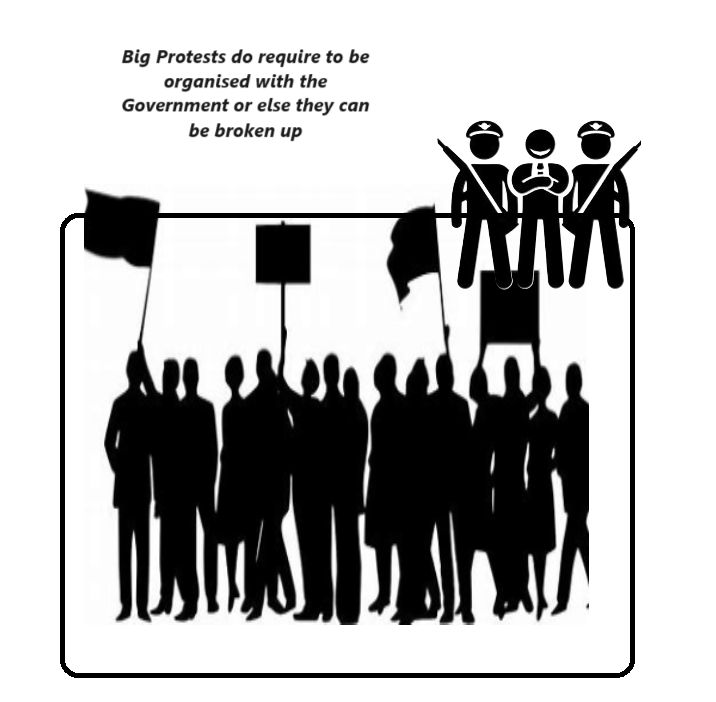Wilson v United Kingdom [2002] ECHR 552
Citation: Wilson v United Kingdom [2002] ECHR 552
Rule of thumb: What happens if a large group of people want to come together to make a protest? There must be a process to apply for this and a date & venue arranged where the large group of people can make the protest together – it is a violation of the right to freedom of association for this not to be done.
Judgment:
there is always to be space made so that peaceful protests can be carried out, particularly between an employee and an employer through trade unions. The Cour further held that although employers are allowed to offer employees more money not to join the trade union they cannot attempt to undermine the trade union members through their negotiations by stating things along the lines of – ‘if you leave the trade union we will offer you X’, ‘The union and its members must however be free, in one way or another, to seek to persuade the employer to listen to what it has to say on behalf of its members. In view of the sensitive character of the social and political issues involved in achieving a proper balance between the competing interests and the wide degree of divergence between the domestic systems in this field, the Contracting States enjoy a wide margin of appreciation as to how trade union freedom may be secured’ (at 44)... ‘It is the role of the State to ensure that trade union members are not prevented or restrained from using their union to represent them in attempts to regulate their relations with their employers. In the present case, it was open to the employers to seek to pre-empt any protest on the part of the unions or their members against the imposition of limits on voluntary collective bargaining, by offering those employees who acquiesced in the termination of collective bargaining substantial pay rises, which were not provided to those who refused to sign contracts accepting the end of union representation. The corollary of this was that United Kingdom law permitted employers to treat less favourably employees who were not prepared to renounce a freedom that was an essential feature of union membership. Such conduct constituted a disincentive or restraint on the use by employees of union membership to protect their interests. However, as the House of Lords' judgment made clear, domestic law did not prohibit the employer from offering an inducement to employees who relinquished the right to union representation, even if the aim and outcome of the exercise was to bring an end to collective bargaining and thus substantially to reduce the authority of the union, as long as the employer did not act with the purpose of preventing or deterring the individual employee simply from being a member of a trade union. Under United Kingdom law at the relevant time it was, therefore, possible for an employer effectively to undermine or frustrate a trade union's ability to strive for the protection of its members' interests. The Court notes that this aspect of domestic law has been the subject of criticism by the Social Charter's Committee of Independent Experts and the ILO's Committee on Freedom of Association (see paragraphs 32–33 and 37 above). It considers that, by permitting employers to use financial incentives to induce employees to surrender important union rights, the respondent State has failed in its positive obligation to secure the enjoyment of the rights under Article 11 of the Convention. This failure amounted to a violation of Article 11, as regards both the applicant trade unions and the individual applicants’ (at 46-48).

Warning: This is not professional legal advice. This is not professional legal education advice. Please obtain professional guidance before embarking on any legal course of action. This is just an interpretation of a Judgment by persons of legal insight & varying levels of legal specialism, experience & expertise. Please read the Judgment yourself and form your own interpretation of it with professional assistance.

